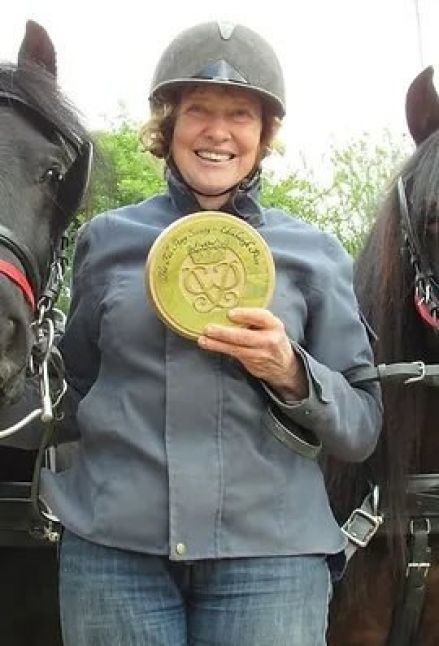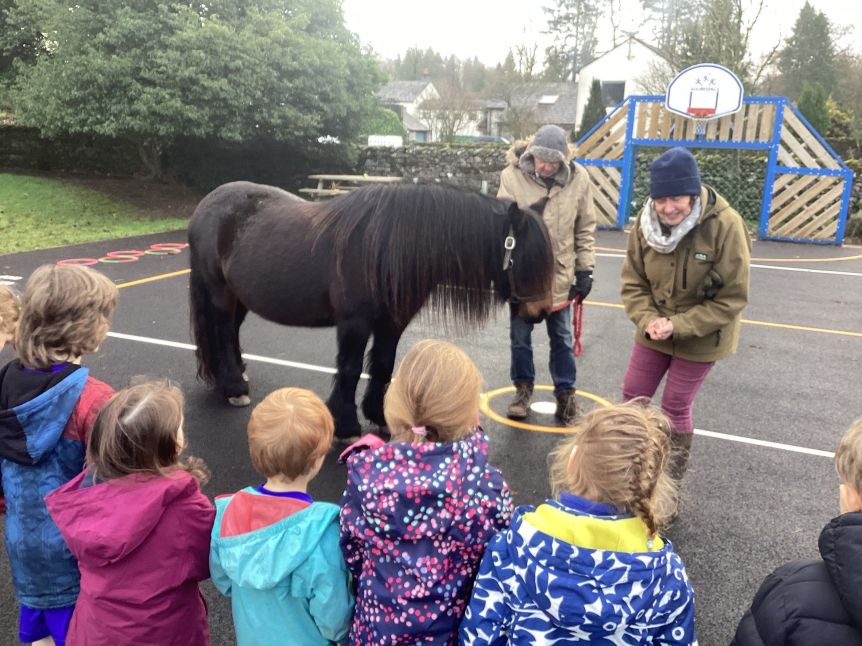

Libby Robinson is Chair of the Fell Pony Heritage Trust in Cumbria and a breeder of the Globetrotter Fell ponies.
We caught up with Libby to find out more about fell ponies in Cumbria, what the trust does and what challenges it faces.

We are committed to supporting the fell pony's value in being an essential part of Cumbia's heritage and ensuring the hill farmers and breeders have a secure and long-term future. Unfortunately, the number of herds is slowly declining, and we wish to help prevent these numbers from falling further.
We aim to conduct research to quantify the positive impact of fell pony grazing on the upland ecosystem.
Our vision is to establish a Fell Pony Heritage Centre in the Lake District to protect the Fell Pony breed characteristics and preserve the working practices for future generations, while also supporting the traditional stewards of the breed - the Cumbrian hill farmers.
Fell Ponies are a landscape breed and have helped to shape the mosaic of upland grazing we see today. Take them off the fells for the winter and invasive vegetation that we don't want would grow back, for example. Fell ponies are also a very capable conservation and regenerative grazer.
Historically, fell ponies were working ponies and they were once the powerful carriers of many trades, and backbone of the economy in Cumbria for centuries. They were bred on the fells by farmers to give these ponies stamina to survive in all weathers, so they are an important part of our cultural heritage because of the relationship they have between humanity and their environment.
The native fell ponies’ way of life on the upland fell as semi-wild ponies living in breeding herds has preserved the ponies true characteristics of hardiness. Their activity roaming their hefted fell gives them great balance, making them naturally suitable for riding, carriage driving and working on farms.

We connect with schools and colleges, and students on animal care and environment courses, to provide informative and engaging experiences of the life of ponies on the fell. We find that taking a real fell pony to local schools is a great way of enhancing knowledge and interest, too!
We raise awareness of fell ponies in Cumbria through social media, local newspapers and national magazines, and give talks to local groups and attend events and shows.
We also connect with local farmers who are interested in helping with the ponies as part of the farm for their mutual future and give talks to Young Farmers groups.

Farming policies at this time more than ever do not understand the importance of the ponies and their life on the fells.
For example, rural payment schemes are paying farmers to keep their livestock off the ‘Farmers grazing rights’ on the fells over the winter months. This means the ponies have nowhere to go in winter, as they are not an agricultural based farm animal that could be grazed on lowland farms under other schemes. This is also happening to hefted sheep flocks. Hefted animals live as a breeding family on the fells and know instinctively where home is above the farm's fell gate.
The fell pony needs preservation within the Cumbrian landscape and needs far more support from regional and national partners to keep its presence on the fell known.
The word needs to be spread to save all native breeds of ponies at their core breeding homes, as other native ponies suffer the same problems.
We need to bring to the attention of government bodies the threat their policies pose to the fell pony on the Cumbrian fells in order to try and get these policies changed accordingly.
The Fell Pony Heritage Trust is also forming a research database for the hill bred fell ponies and the hill farmers that still have the skills to look after them – this needs an investment of time and money for expenses.
We’d also like a suitable location for a Fell Pony Heritage Centre on a hill farm for educational purposes and with working demonstrations of fell ponies in the environment of upland farms.
It would also be great to see more young volunteers who can learn about the importance of these wilder based ponies in nature and how important they are to securing the future of wildlife.

The Fell Pony Heritage Trust on BBC Look North
Visit the the Fell Pony Heritage Trust website to learn more about the trust and find out how you can get involved.
